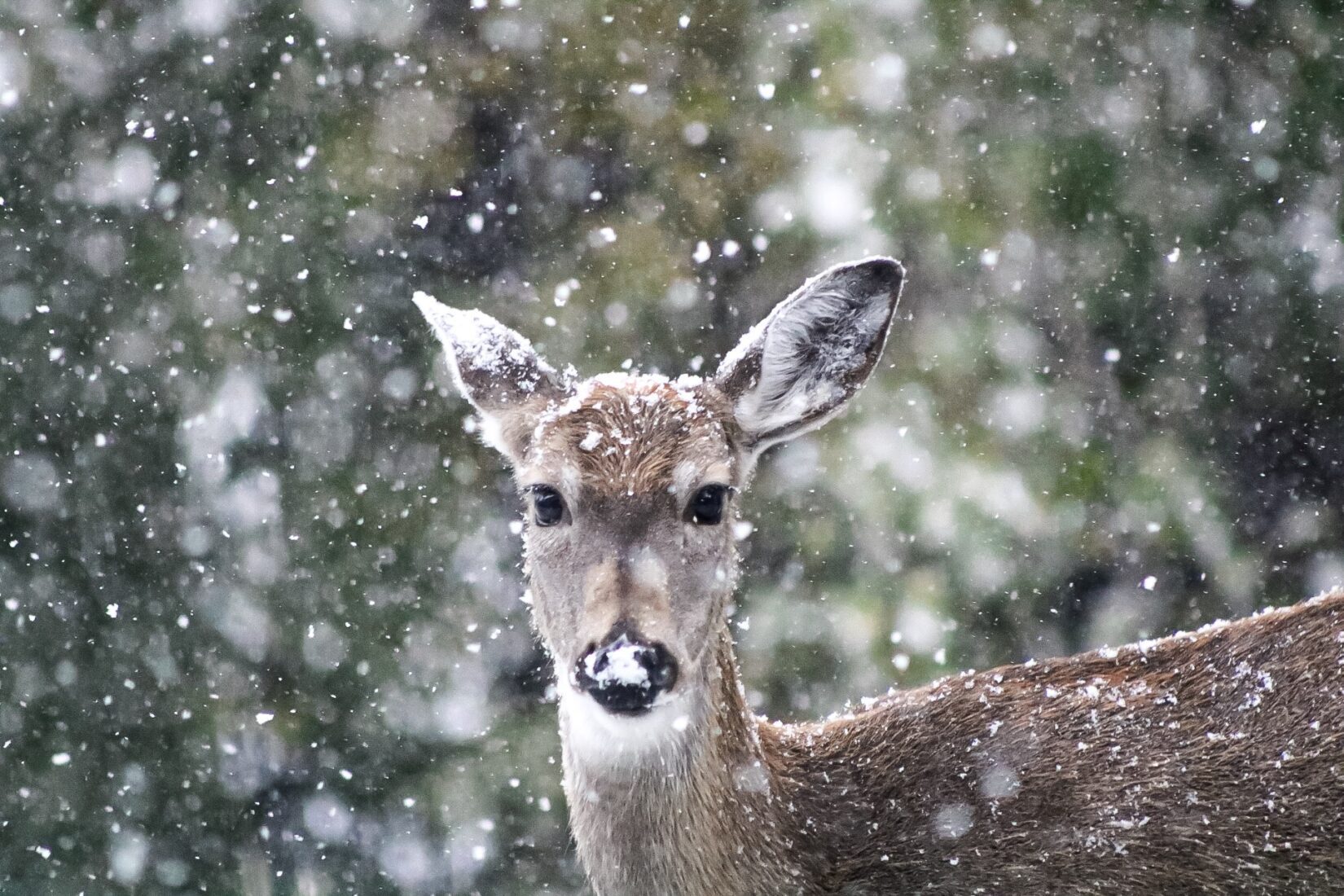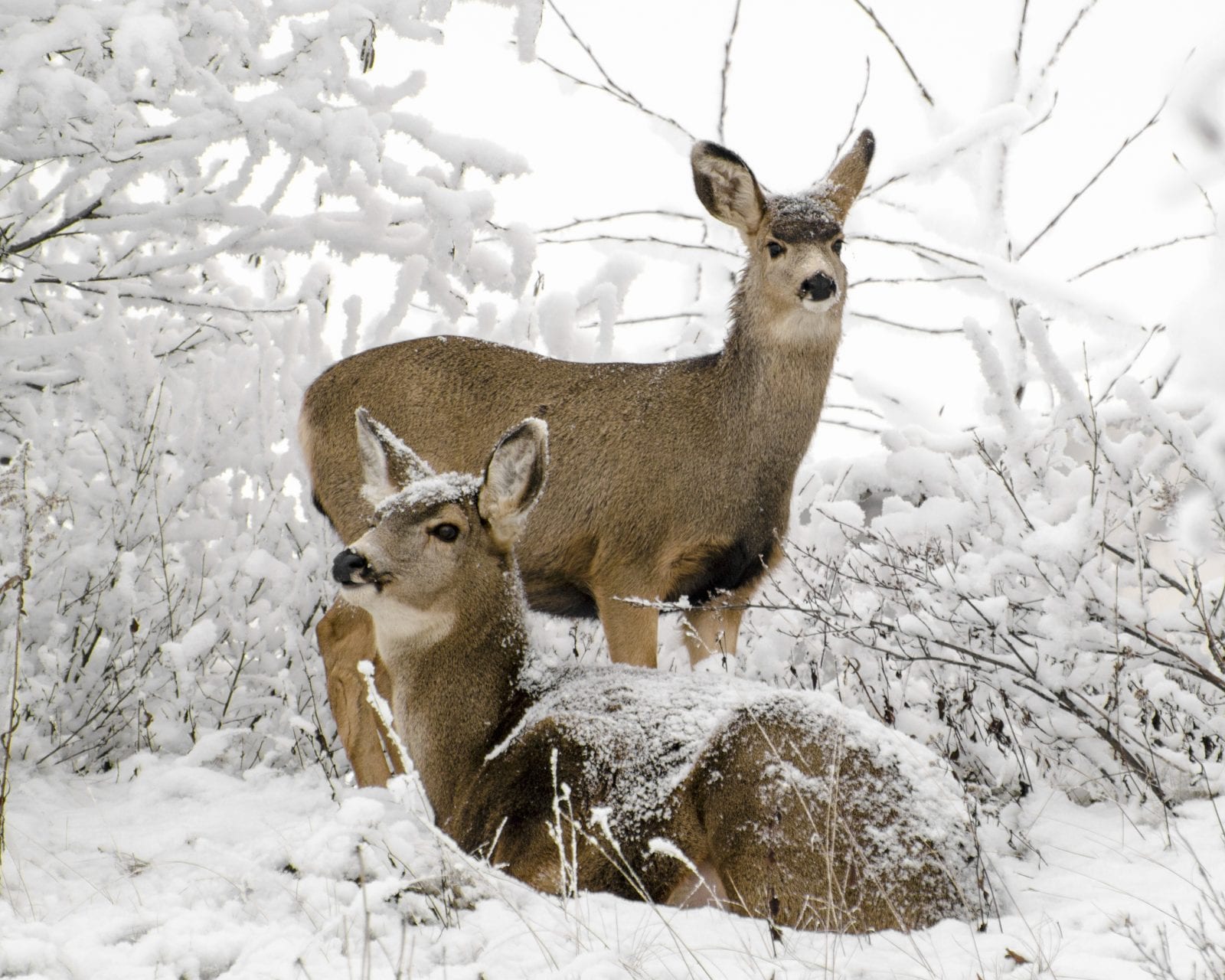Each winter, our Animal Helpline receives calls about deer with winterkill. But what is “winterkill” and what can be done about it?
“Winterkill” is an often fatal condition in deer. It’s caused by any combination of poor nutrition, parasites and a late birth. Deer affected by winterkill may look very weak, thin and lose their hair. When they feel unwell, they may try to hide in yards, gardens, decks or porches trying to stay warm. You may even notice diarrhea on their tail or on the ground nearby.

With climate change causing unexpected changes in the season, deer may have a hard time adjusting. On the south coast where the weather is mild, fawn season lasts a little longer, and fawns born later may be smaller as winter approaches. Even with the best preparation possible, winter is the most nutritionally stressful time for wild animals. Animals need to maintain their weight despite the cold, wet or snow, and the young born in the spring or summer also need to grow their muscles and bone.
Several species of lice, ticks and other parasites are normally present in deer. The combination of parasites and nutritional challenges can be especially challenging for young animals coming into their first winter.
Although they look skinny and like they need help, never feed deer. The microbial gut composition of deer changes seasonally to adapt to their natural food sources. In winter, deer expand their foraging range to get the nutrition they need. Feeding deer encourages them to stay in one area that may not have enough natural food sources to meet their needs. In addition, food that is provided by humans may not be digestible or nutritionally appropriate and will likely cause diarrhea and weight loss. Feeding deer affected by winterkill can make their condition worse and lead to death. Feeding wildlife usually does more harm than good.
The best way you can help is simply keeping your distance, and giving them a safe space to rest when they need it most.

Unfortunately, wildlife rehabilitators can’t often help sick or injured adult deer. They are too high-stress to keep in a captive setting. Even when injured, they can be very dangerous because of their size and strength.
If you have found a sick or injured adult deer that is unable to move, call the Conservation Officer Service at 1-877-952-7277 (RAPP), your local wildlife rehabilitator or our Animal Helpline at 1-855-622-7722 for help to assess the situation.
Learn more about:
- Coexisting with urban deer
- The harms of wildlife feeding
- Making a wildlife-friendly backyard
- What to do if you find a deer fawn
Subscribe to WildSense
To stay up to date on wild animal issues in B.C., subscribe to our WildSense e-newsletter. The newsletter comes straight to your inbox just six times a year.
